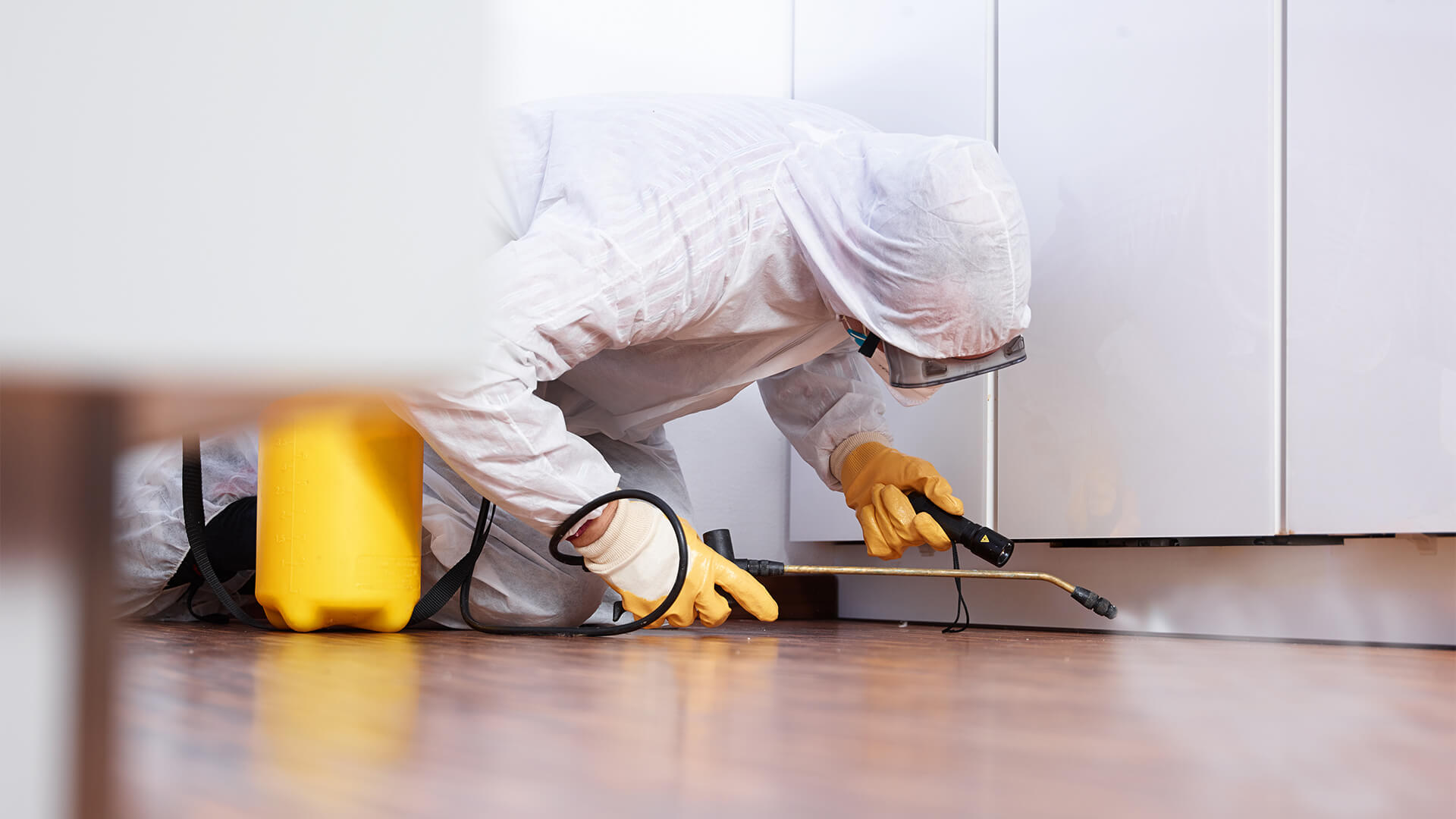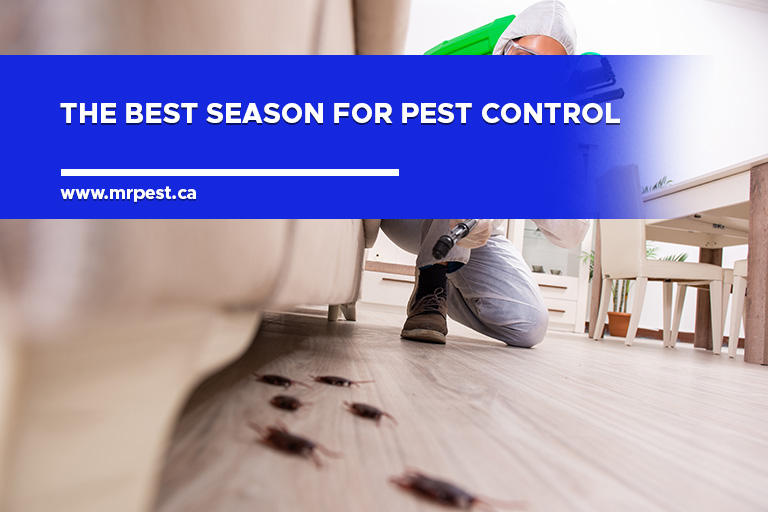Safe and Trusted Parasite Control for Lasting Security
The value of risk-free and reliable pest control can not be overstated, particularly in an era where ecological issues are paramount. Reliable insect monitoring calls for a complex method that balances eco-friendly stability with the demand for effective insect suppression. By checking out environment-friendly remedies and integrated pest administration methods, house owners can accomplish long-term defense versus invasive species while guarding useful environments. However, the subtleties of these techniques might not be quickly clear, prompting a closer assessment of the practices that can lead to lasting insect control results. What steps can be required to make certain both safety and security and effectiveness in pest management?
Recognizing Insect Control Approaches
Parasite control includes a selection of techniques focused on managing and eradicating undesirable bugs and rats that can threaten both wellness and residential or commercial property. Recognizing these methods is vital for efficient parasite management.
The main groups of pest control methods consist of mechanical, biological, and chemical approaches. Mechanical approaches involve physical barriers and catches to avoid parasite entry and capture unwanted varieties. Making use of displays on windows or using sticky traps can significantly minimize parasite populaces without presenting harmful substances - exterminator coquitlam.

Chemical pest control is frequently one of the most recognized technique, utilizing pesticides to remove parasites. These chemicals can be reliable however should be used with care to prevent unfavorable effects on non-target varieties and the setting.
Benefits of Eco-Friendly Solutions
Just how can eco-friendly services change parasite control techniques? The fostering of eco-friendly parasite control methods supplies countless benefits, significantly improving the effectiveness and safety of insect monitoring.

Another advantage is the positive effect on regional biodiversity. Environmentally friendly options are made to target certain insects while protecting beneficial bugs and wild animals, promoting a well balanced environment. This approach aligns with the expanding customer demand for lasting practices, enhancing the online reputation of insect control service providers.
Integrated Parasite Management Methods
The implementation of eco-friendly solutions normally brings about the adoption of Integrated Insect Management (IPM) techniques, which additionally improve bug control effectiveness. IPM is a holistic technique that combines numerous tactics to handle parasite populaces while reducing ecological effect. This strategy stresses using organic, cultural, mechanical, and chemical controls, ensuring a well balanced and lasting approach of pest monitoring.
One fundamental aspect of IPM is the thorough evaluation of parasite activity and environmental problems. By keeping an eye on bug populaces and determining their life cycles, professionals can implement targeted interventions that interrupt the parasite's environment carpenter ant control or lifecycle, minimizing dependence on chemical pesticides. Furthermore, cultural methods such as plant turning and environment control can dramatically lessen parasite facility and recreation.
Another vital element is using biological control agents, such as helpful insects or bacteria, which can naturally suppress bug populaces. When chemical applications are needed, IPM focuses on the usage of low-risk chemicals and applies them precisely, decreasing direct exposure to non-target microorganisms and humans.
Incorporating IPM strategies not only improves bug control effectiveness but likewise advertises a safer environment, aligning with the growing need for sustainable methods in pest monitoring.
Safe Practices for Property Owners
Recognizing the significance of safe practices in insect control can equip homeowners to successfully handle pest issues while guarding their health and the setting. Executing non-toxic approaches and safety nets is important in minimizing direct exposure to unsafe chemicals.
Homeowners ought to first evaluate their environment for problems that draw in bugs, such as standing water, food, and clutter waste. On a regular basis cleansing and securing entry points can prevent pests from getting you can try here into the home. Utilizing natural deterrents, such as vital oils or diatomaceous earth, can provide efficient options to chemical pesticides.
When chemical therapies are necessary, homeowners must decide for products that are specifically classified as secure for residential use. It is necessary to comply with application standards thoroughly to stay clear of overexposure. Using targeted treatments in areas where bugs are identified, rather than covering spraying, can considerably decrease chemical usage.
Lastly, maintaining open interaction with bug control professionals is crucial. House owners need to ask regarding the safety and security of items made use of and request eco-friendly options whenever feasible. By taking on these safe methods, home owners can develop a healthier living setting while properly handling insect concerns.

Tips for Long-Term Security
Developing a parasite management strategy that highlights lasting security can significantly boost the efficiency of the secure practices formerly talked about. To attain this, home owners need to implement routine examinations of their building, focusing on concealed locations such as attic rooms, cellars, and crawl spaces. Early detection of insect task is important in avoiding infestations from taking hold.
Additionally, preserving a clean setting is crucial. This consists of correct food storage, quickly cleaning spills, and consistently disposing of waste. These practices reduce attractants that attract parasites into the home. In addition, securing entrance points, such as fractures around doors and windows, can properly obstruct prospective insect access.
Landscaping must additionally be thought about; maintaining plants trimmed and preserving a distance in between plants and the home minimizes hiding places for bugs. Making use of natural deterrents, such as vital oils or diatomaceous earth, can additionally dissuade infestations without turning to severe chemicals.
Last but not least, teaming up with a professional pest control solution for routine analyses can provide an added layer of security. These experts can use customized suggestions and advanced treatments, making sure that your home stays safeguarded against parasites in the long-term.
Verdict
In conclusion, reliable and secure parasite control requires a complex technique that stresses environment-friendly techniques and integrated parasite monitoring. By implementing all-natural deterrents, performing normal evaluations, and preserving proper hygiene, residential or commercial property proprietors can dramatically their website lower insect populaces while securing beneficial insects and the environment. Cooperation with expert pest control solutions improves the performance of these strategies, ensuring customized options that give long lasting protection and tranquility of mind versus future problems.
Effective pest monitoring calls for a complex approach that stabilizes eco-friendly integrity with the requirement for efficient bug reductions. The fostering of green parasite control approaches uses countless benefits, substantially improving the efficiency and security of insect monitoring.The implementation of environmentally friendly solutions normally leads to the adoption of Integrated Parasite Monitoring (IPM) strategies, which even more enhance pest control efficiency. exterminator coquitlam. By keeping an eye on insect populaces and recognizing their life cycles, experts can execute targeted interventions that interrupt the insect's habitat or lifecycle, lowering reliance on chemical pesticides.In final thought, risk-free and trustworthy parasite control requires a diverse approach that emphasizes green techniques and integrated parasite management